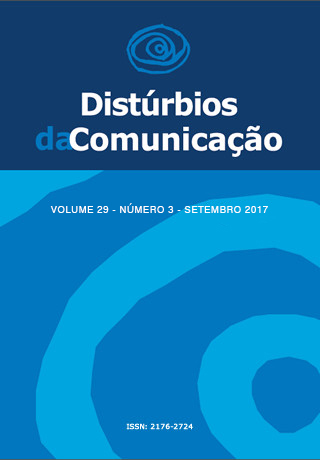Difficulties in introduction of complementary foods to breastfeeding in non-dysphagic babies: effects of speech-language pathological interference
DOI:
https://doi.org/10.23925/2176-2724.2017v29i3p539-557Keywords:
Speech, Language and Hearing Sciences, Breast feeding, Case Sstudies, Mixed feeding, Feeding behavior, Deglutition disorders.Abstract
Introduction: In the transition period from breastfeeding to pasty and/or solid food, such modification
may be not well accepted by the mother and/or baby and cause subsequent feeding and/or language
problems. Objective: To describe the effects resulting from speech and language therapy while facing
the difficulties in the introduction of complementary foods to breastfeeding in non-dysphagic babies in
a biopsychic approach. Method: studies carried out by philanthropic institution of health in accordance
with ethical criteria for research with human beings. Casuistry: Five mother/baby dyads, babies from
both genders over between 5 and 8 months old showing weaning difficulties to pasty food and without
any diagnosis of either mechanical or neurogenic oropharyngeal dysphagia. The sampling was obtained
by convenience. Procedures: Four meetings were conducted, three of home visits, in which were applied
three evaluation instruments adapted from literature. After the speech-language pathological interference
the last one was a reapplication for the purpose of comparing before and after. Results: After speechlanguage
pathological interference, choking episodes were eliminated, meals became more pleasuring for
mother/baby dyads and babies started accepting food more adequately. The results show that there was
statistically significant difference between before and after speech-language pathological interference.
Initially, the average was 16,0 points (dp=1,0), and end 21,2 points (dp=0,8), (p=0,001). Conclusion:
Speech-language pathological interference in a biopsychic approach promoted benefits in the cases studied
Downloads
Downloads
Published
Issue
Section
License
Copyright (c) 2017 Emelie Villela Costa, Patrícia Rocha Santos, Maria Claudia Cunha

This work is licensed under a Creative Commons Attribution 4.0 International License.









